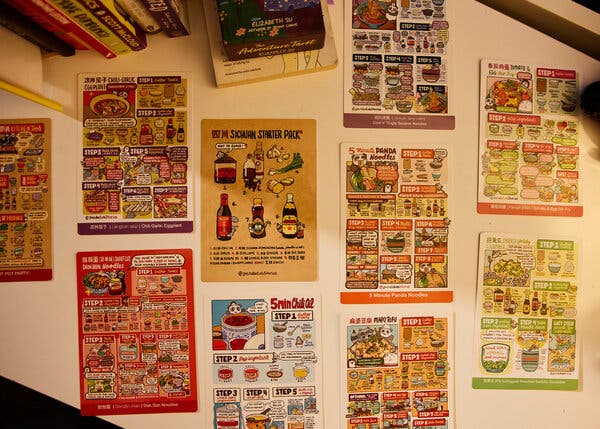The disorder, which affects executive function, can cause distinct challenges in the kitchen, leaving many to develop their own accommodations.
Listen to this article · 5:30 min Learn more
From a young age, Linda Yi was drawn to the kitchen and loved watching her parents make Sichuan dishes inspired by their native Chengdu. But when she’d ask them to go over a step or recipe she’d watched them make dozens of times, they’d reply the same way: “You still don’t remember?”
When, in her mid-20s, she became one of the 4.4 percent of adults ages 18 to 44 diagnosed with attention deficit hyperactivity disorder, or A.D.H.D, her relationship to cooking changed for the better. She said the diagnosis helped her “see the areas of my brain that need support,” and to adapt, as many cooks with the disorder have.
For many adults, A.D.H.D. symptoms can present differently than they do in children, and in some cases, become more severe amid job, relationship and household stressors, according to the Centers for Disease Control and Prevention. And these challenges prove especially true in the kitchen.
One of the major issues, Jessica McCabe, a YouTube creator and the author of “How to A.D.H.D,” explains in her book, relates to “executive function,” or the cognitive processes that tell us how to prioritize tasks, sustain attention and effectively plan for both long- and short-term goals, all of which play an important role whether you’re shopping for ingredients or making sure your food doesn’t overcook.
“The executive function system is like the conductor of your brain’s orchestra,” said Marcy Caldwell, the owner and director of the Center for ADHD, a therapy and coaching practice based in Philadelphia. She cites cooking as being among the most complex activities calling for executive function, adding that it can be overwhelming for her patients because it generally happens at the end of the day, when energy is depleted and medication may be wearing off.
Thank you for your patience while we verify access.
